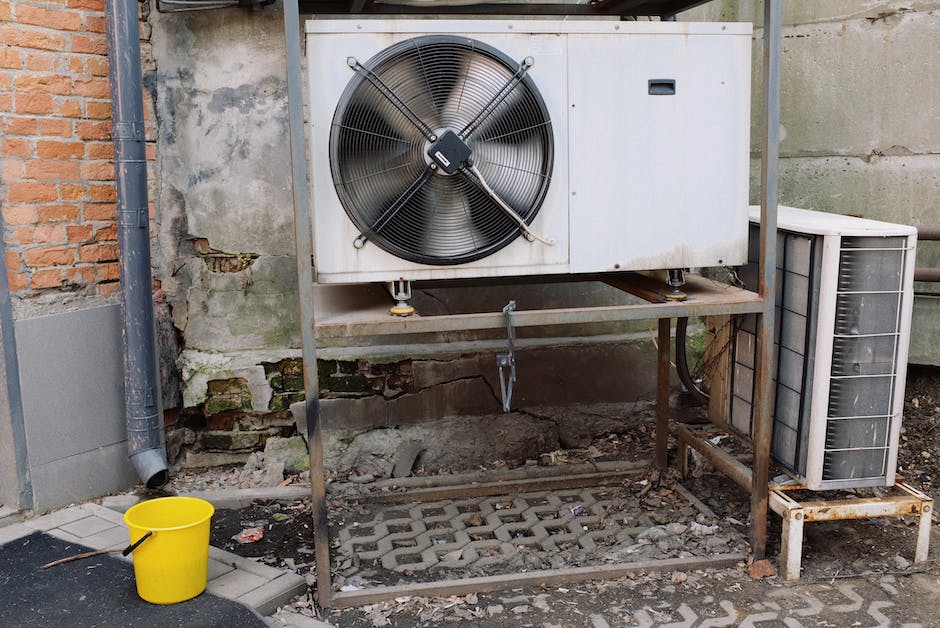Bespoke Hvac Software
What is HVAC Software?
HVAC software refers to a broad range of software solutions that are specifically designed for the heating, ventilation, and air conditioning industry. This category of software is used by business owners in the HVAC industry to manage various aspects of their businesses, such as scheduling, dispatching, billing, inventory management, and more.Contact us if you are wanting to have a bespoke Hvac application developed?
HVAC software can be further classified into different types based on their specific applications. Some popular types of HVAC software include HVAC service software, which is designed to help HVAC service companies manage their operations more efficiently; HVAC scheduling software, which is designed to facilitate scheduling and dispatching of HVAC technicians; and HVAC design software, which is designed to help engineers and designers optimize the design of HVAC systems for buildings of all types.
One of the main benefits of custom HVAC software is that it can be tailored to meet the unique needs and requirements of each business. This means that business owners can choose the features and functionalities that are most important to them and their operations, and integrate them into a single, unified system. This can help to streamline processes, improve communication and collaboration among team members, and ultimately increase efficiency and profitability.
Overall, custom HVAC software can be an incredibly powerful tool for businesses in the HVAC industry, and can help to drive growth, improve customer service, and stay ahead of the competition.

What are the main functions of HVAC Software?
HVAC software typically includes several modules that provide functionality to business owners in the HVAC industry. These modules include:1. Scheduling: This module allows users to schedule appointments and dispatch technicians to job sites. It also provides real-time updates on the status of appointments and assigned technicians.
2. Service management: This module enables users to manage service orders, including tracking and documentation of services performed, invoicing, and payment processing.
3. Inventory management: This module tracks inventory levels and helps users automate purchasing and restocking tasks. It can also provide real-time updates on inventory levels and usage.
4. Customer management: This module allows users to manage customer information, including contact details, service history, and preferences. It can also provide customer analytics and personalized marketing features.
5. Reporting and analytics: This module enables users to retrieve and analyze data from various modules in the software. This allows business owners to make better-informed decisions and identify areas for improvement.
Overall, the main goal of HVAC software is to streamline business operations and improve customer satisfaction. By automating repetitive tasks and providing real-time updates, businesses can reduce errors and increase efficiency. Additionally, by providing data analytics and reporting features, business owners can make data-driven decisions that improve profitability and growth.
Data / systems integration
HVAC software often integrates with other building automation systems to provide a comprehensive solution for building management. This can include integrating with energy management systems, lighting control systems, and security systems.APIs (Application Programming Interfaces) are commonly used for this integration. API tools allow different software systems to communicate with each other and share data in a standardized way. By utilizing APIs, HVAC software can easily integrate with other building automation systems and allow for seamless data sharing.
When considering API integration, some important considerations include ensuring that the APIs used are secure, reliable, and scalable. Additionally, it is important to ensure that the APIs chosen are well-documented, so that integration can be done efficiently and effectively. Finally, it is important to consider the cost of integrating with different systems, and how this will impact the overall development budget and timeline.
Who uses HVAC Software?
HVAC software, HVAC service software, and HVAC scheduling software are used by a variety of organizations in different market verticals and sizes. Typically, these software solutions are utilized by organizations within the building and construction industry, such as HVAC contractors, facilities management companies, and property management firms. These organizations can range from small businesses to larger corporations with multiple locations. Additionally, organizations in industries such as healthcare, hospitality, and education may also use HVAC software solutions to manage their building maintenance and service needs. Overall, any organization that requires efficient management of their HVAC systems can benefit from a custom HVAC software solution.
Benefits of HVAC Software
Organizations use HVAC software to streamline their heating, ventilation, and air conditioning systems. The software allows businesses to manage their HVAC systems more efficiently, saving time and money. Additionally, HVAC software also helps businesses monitor and reduce their energy consumption, leading to cost savings and reduced environmental impact.One of the main benefits of HVAC software is improved maintenance scheduling. The software can automate maintenance scheduling, ensuring that equipment servicing is done regularly and on time. This can prolong the life of HVAC systems and reduce the likelihood of costly breakdowns.
Another benefit of HVAC software is improved energy efficiency. By monitoring HVAC systems, the software can identify inefficiencies and suggest improvements, such as optimizing equipment operating times or upgrading to more energy-efficient models. These improvements can lead to significant cost savings for businesses.
In addition to these benefits, HVAC software can also improve communication and collaboration. For example, technicians can use the software to access work orders and track progress in real-time, leading to improved communication and collaboration across teams.
Overall, HVAC software offers many benefits to businesses, including improved maintenance scheduling, energy efficiency, and communication. With the help of a custom software development company, businesses can create bespoke HVAC software solutions that meet their unique needs and optimize their HVAC systems.
Some of the players in the HVAC Software market
Some of the main brands of HVAC software include:1. ServiceTitan - key benefits include its ability to manage every aspect of HVAC businesses, from scheduling to dispatching to invoicing. It also allows for easy communication with customers and has a user-friendly interface. However, some customers have complained about limited customization options and frequent updates causing glitches.
2. Housecall Pro - key benefits include its mobile-friendly design, easy scheduling and dispatching, and quick invoicing. It also integrates with popular accounting software such as QuickBooks. However, some users have reported difficulty in integrating with other software and limited reporting options.
3. RazorSync - key benefits include a customizable interface, GPS tracking, and easy scheduling and dispatching. It also offers integrations with QuickBooks and other popular software. However, some customers have experienced glitches and slow loading times.
4. FieldEdge - key benefits include its ease of use, detailed reporting, and flexible scheduling options. It also offers real-time dispatching and invoicing. However, some users have reported issues with customer support, difficulty in finding information, and a high price point.
5. Service M8 - key benefits include its user-friendly interface, detailed job management system, and customizable workflow features. It also integrates with popular accounting software such as Xero and MYOB. However, some customers have reported glitches and slow loading times, as well as difficulty in setting up and learning the software.
Benefits of off-the-shelf HVAC Software
Off-the-shelf HVAC software offers businesses a range of benefits, including affordability, pre-built functionality, and ease of use. These software solutions are typically designed to meet the requirements of a wide range of businesses, meaning they are cost-effective and can be implemented quickly. Additionally, off-the-shelf HVAC software often includes a range of pre-built features, including HVAC scheduling, invoicing, and inventory management. This means businesses can quickly access the functionality they need without having to invest in custom development. The user-friendly interfaces of these software solutions also make them easy to learn and use, minimizing training and onboarding time. Finally, off-the-shelf software solutions are often supported by a large community of users and developers, ensuring that businesses have access to expert assistance and that the software remains up-to-date and secure.Limitations of off-the-shelf HVAC Software
Off-the-shelf HVAC software typically comes with a number of limitations for businesses. One of these limitations is a lack of customizability. These software solutions are designed to cater to a wide range of businesses, and while they might cover most of the basic requirements, they may not fully align with the specific needs of each HVAC business. For instance, a business that specializes in residential HVAC servicing may not find an off-the-shelf software solution that caters to their specific service requirements.Another significant limitation is the inability to integrate with other third-party tools or services. As different businesses operate differently, they also have different systems and tools that they rely on. An HVAC business may use QuickBooks for accounting or other software for project management, and an off-the-shelf HVAC software may not integrate with these third-party tools. This can lead to inefficiencies, errors, and rework, which may lead to a loss of productive time and revenue.
Off-the-shelf software may also be limiting in terms of scalability. As a business grows and expands its operations, it may require new functionalities to manage the increased workload. An off-the-shelf HVAC software may not offer the scalability required to accommodate the growing needs of an HVAC company.
These limitations can be frustrating and ultimately, can hinder a business's ability to operate to the best of its ability. A custom HVAC software solution can be tailored to meet the unique needs of each HVAC business, help them integrate with existing systems and tools, and provide scalability with business growth, ultimately leading to increased efficiency and revenue.
Is bespoke HVAC Software a viable option?
Bespoke or partially bespoke HVAC software provides numerous benefits to business owners in the HVAC industry. Firstly, custom-designed software can be tailored to the exact needs of a business, enabling it to operate efficiently and effectively. The software can be customized to support specific tasks such as inventory management, customer management, scheduling, and billing. This can significantly reduce the time spent on tasks, streamline workflows, and increase productivity.One successful use case of bespoke HVAC software is the application of IoT (Internet of Things) technology in HVAC systems. IoT-enabled HVAC systems use sensors to collect and analyze data on temperature, humidity, and air quality. This data feeds into a custom-designed software that adjusts the HVAC system in real-time, optimizing energy usage and reducing costs. This not only saves money, but it also improves comfort levels for building occupants.
Another successful use case of bespoke HVAC software is the automation of maintenance processes. With a custom-designed software, businesses can automate maintenance schedules, track equipment performance, and generate reports that help them identify potential issues before they become critical. This can help prevent costly breakdowns and extend the lifespan of equipment, ultimately saving businesses time and money.
Overall, bespoke or partially bespoke HVAC software can offer significant benefits to business owners in the HVAC industry. By designing software that is tailored to specific needs, businesses can streamline workflows, improve productivity, reduce costs, and ultimately provide better services to customers.

Fun facts about HVAC Software
1. HVAC software is predicted to reach a market value of $10.8 billion by 2024, with a compound annual growth rate of 6.8% from 2019 to 2024.2. The use of HVAC service software can reduce service call times by up to 40%, decreased repair costs by 12-18%, and increase productivity by up to 40%.
3. HVAC scheduling software can improve scheduling efficiency by up to 50%, leading to improved customer satisfaction and a reduction in operational costs.
4. The HVAC industry is increasing its focus on energy efficiency, with software solutions being developed to monitor energy consumption and identify areas where energy usage can be reduced.
5. The Internet of Things (IoT) is playing an increasingly vital role in the development of HVAC software, with IoT-enabled devices being used to gather data on temperature, humidity, and air quality in real-time, leading to more accurate and efficient HVAC management.
6. Smart building technology is driving demand for more sophisticated HVAC software solutions, with building owners looking for integrated systems that can manage all aspects of HVAC performance and maintenance.
7. Mobile access is becoming increasingly important for HVAC software users, with technicians requiring the ability to access and update information from anywhere and at any time.
8. Predictive maintenance is also playing a growing role in HVAC software development, with software solutions being designed to monitor HVAC systems in real-time and predict when maintenance will be required, leading to improved performance, reduced maintenance costs, and increased energy efficiency.
HVAC Software FAQ
1. What are the benefits of having a custom HVAC software developed?A custom HVAC software can offer several benefits to business owners. Firstly, it can streamline their entire process by automating tasks such as scheduling appointments, inventory management, and billing. This can significantly reduce the workload and increase efficiency. Secondly, a custom HVAC software can be tailored to the specific business needs, which means that it can include all the necessary features and functions. Lastly, a custom software can offer enhanced security as it can be built with the latest security measures in mind.
2. What features can be included in a custom HVAC software?
A custom HVAC software can include a wide range of features depending on the business's specific requirements. Some common features that can be included are scheduling and dispatching, inventory management, customer management, equipment tracking, invoicing and billing, service history, and mobile access. The software can also be integrated with other systems in the company, such as accounting software, to seamlessly streamline the entire process.
3. How long does it take to develop a custom HVAC software?
The development time of a custom HVAC software can vary depending on the complexity of the project, the number of features required, and the scale of the application. It can take anywhere from a few months to a year or more to develop a custom software. The development team will need to understand the business requirements, design the user interface, develop the software, and test it thoroughly before finally launching it.
4. What is the cost of developing a custom HVAC software?
The cost of developing a custom HVAC software can vary depending on the requirements and complexity of the software. It is not possible to provide any specific figures without understanding the business requirements. However, the development company will provide a detailed proposal outlining the costs involved. Business owners should keep in mind that a custom software can offer a strong ROI by increasing efficiency and streamlining operations, which can offset the development costs over time.
5. Is a custom HVAC software scalable?
Yes, a custom HVAC software can be designed with scalability in mind. The software can be built using modular code that can be easily expanded to add new features or to accommodate growth in the business. The ability to scale the software is an essential consideration for businesses that want to stay competitive in the long run.
6. Can a custom HVAC software integrate with existing systems in the company?
Yes, a custom HVAC software can be built to integrate with existing systems in the company, such as accounting software or CRM systems. This will ensure that all the data is centralized in one place, reducing the time and effort required to manage different systems. The development team will work closely with the business owners to identify the systems that need to be integrated and ensure that the software is compatible with those systems.
7. What is the maintenance and support after the software is developed?
The development company will provide maintenance and support after the software is developed. The level of support can vary depending on the package chosen, but most companies offer ongoing support to ensure that the software is running smoothly. The maintenance and support can include bug fixes, updates, and upgrades to keep the software up to date with the latest technology. Business owners should discuss the support options with the development company before finalizing the contract.
Next Steps?
Are you tired of the inefficiencies and limitations of off-the-shelf HVAC software? If you're a business owner in the HVAC industry, you understand the importance of having software that perfectly fits your unique needs. That's why we at [company name] specialize in crafting bespoke HVAC software solutions that are tailored specifically to your business.Our expertise extends to HVAC service software, HVAC scheduling software, and so much more. With our help, you can optimize your operations and streamline your workflow, saving you time and money in the long run.
If you're considering having custom HVAC software developed, don't hesitate to get in touch with us. We'll take the time to understand your business and your needs, and work closely with you to create software that is both powerful and user-friendly.
And if you need help with systems integration or data migration work, we've got you covered there too. Our team has extensive experience in these areas, and will work tirelessly to ensure a seamless transition to your new software.
Don't settle for generic software that doesn't meet your needs. Contact us today to take your HVAC business to the next level with bespoke software solutions.
Read more about the main software category Other Applications.
Other services in Other Applications category:
Want a quick quote for the development of custom Hvac Application?
Contact us to discuss your questions about bespoke Hvac Applications.
